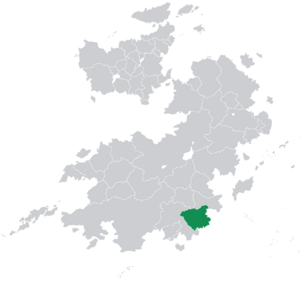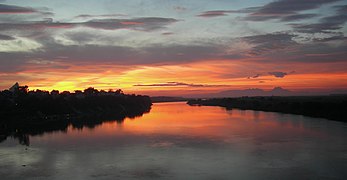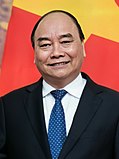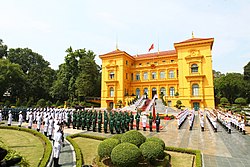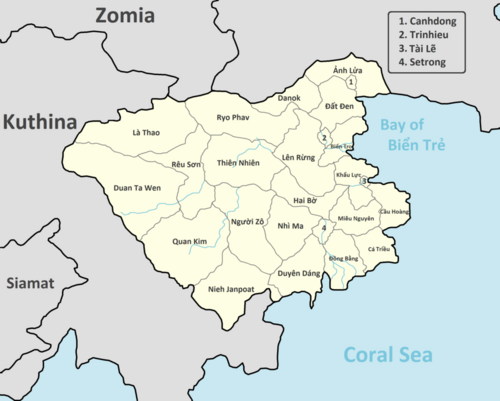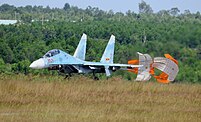Nainan
This article is incomplete because it is pending further input from participants, or it is a work-in-progress by one author. Please comment on this article's talk page to share your input, comments and questions. Note: To contribute to this article, you may need to seek help from the author(s) of this page. |
Harmonious Republic of Nainan 共和諧和奈人 Cộng Hòa Hài Hòa Nài Nhân | |
|---|---|
| Motto: 眾些仕盛旺𥹰𨱽! Long shall we prosper! | |
| Anthem: 𣎃爸𧵑團結吧解放 March of Solidarity and Liberation | |
| National Seal | |
Nainan in Coius | |
| Capital | Trinhieu |
| Largest city | Setrong |
| Official languages | Nainese |
| Recognised regional languages | Nieh Makhao Ryo Danok |
| Ethnic groups | Nainese Nieh Makhao Ryo Danok |
| Demonym(s) | Nainese |
| Government | Unitary authoritarian one-party republic |
• State Director | Lê Tranh Lộc |
• Premier | Quách An Tương |
• General Secretariat of the Party | Hoàng Lan Mai |
• President of the People's Senate | Tiêu Công Lý |
| Legislature | People's Senate of Nainan |
| Population | |
• 2019 estimate | |
| GDP (PPP) | estimate |
• Total | $1,063 Billion |
• Per capita | $18,745 |
| GDP (nominal) | estimate |
• Total | $548.7 Billion |
• Per capita | $6,545 |
| Currency | Nainese Cân (斤,ȼ) (NC) |
The Harmonious Republic of Nainan (Nainese: 共和諧和奈人; Cộng Hòa Hài Hòa Nài Nhân), commonly referred to as Nainan (Nainese: 奈人; Nài Nhân), is a unitary authoritarian one-party republic located in Southeast Coius. Sharing borders to the west by Kuthina and to the north by Zomia, and has a coastline to the southeast on the Coral Sea. It's capitol is the city of Trinhieu and it's largest city is Setrong. With a population of 83.8 million people it is one of the most populated nations in the world.
Etymology
The word "Nainan" is an exonym based on the pronounciation of the native name of the nation, written in Chữ Mới as Nài Nhân (Chữ Đông: 奈人). The words come from Shangean characters Nài(奈) and Rén(人) meaning "enduring people", which translate into Chữ Đông as Nài Nhân.
History
Ancient
Nài Hóa people
Antiquity
Giang dynasty
Tết dynasty
Medieval
Two kingdoms period
Svai rule
Great Lương dynasty
Thân dynasty
Early Modern
Khiêm dynasty
Khaunban rule (1658-1684)
Vĩnh dynasty
Weranian rule
Great War
Kingdom of Nainan
Civil War (1956-1964)

Late 20th Century

Modern Nainan
Geography
The islands of Trụ Trời Bay
The Serpent River delta marshland
The Black River outside of Trinhieu
The Là Thao Ridge in western Nainan
Government and Politics
The 1964 constitution is the founding basis for the functions and layout of Nainan's government. The government includes a executive branch, legislative branch, and a judicial branch. The head of state is the office of State Director, and the head of government is the Premier. Nainan has a unitary form of government, and mixed presidential and parliamentary elements. Some has compared Nainan's government to having semi-presidential system. Politically it is considered an authoritarian state by many. The Government is centered around the ideology of Tự Ý Chí (自意志; lit. "self-will"), based upon the writings of first Director Hoàng Viện Trai.
Government
All leaders of all branches of government, and the NPSL general secretariat are part of the Central Council (会同中秧; Hội đồng Trung ương), which serves the leading body of Nainan's government and to allow work between all branches and the party. Some members of the Central Council include the State Director, Premier, President of the People's Senate, General Secretary of the NPSL, and the Chief of Staff of the People's Army of Solidarity. The Central Council supersedes all branches of the government and has no central chairperson leading it.
The executive branch of the government is the State Directory (書目茹渃; Thư mục Nhà nước), it is lead by the State Director, who serves as the head of state, he is the appointer of the Premier and Cabinet. It also consists of the Premier, who as head of government leads the cabinet with support from the People's Senate.
The legislative branch of the government is the People's Senate (上院人民; Thượng viện Nhân dân). It is a unicameral legislature and is usually lead by the President of the People's Senate and the Premier and cabinet officials can sometimes be members of the People's Senate. Within the legislature there is only one party, the NPSL, but it is divided into many unofficial factions. There are a total of 599 seats in the People's Assembly, each seat represents their various districts. Each Province has a total number of districts based on population.
The judicial branch of the government is the Judiciary Committee (委班四法; Ủy ban Tư pháp). It is the highest judicial body in Nainan and is made up of 15 members. They are all appointed by the Central Council with approval from the State Director, Premier, and People's Senate. They also have a sub-division known as the Inspection Committee which is meant to maintain order of government officials and remove those who are going against the Party.
Nainan's government is considered very authoritarian by many and has been criticized as corrupt and is even considered by many to be a police state. Various government police groups such as the notorious Văn Điều are criticized as removing political dissent from the country. The banning of all other parties besides the NPSL has garnered wide-spread criticism of the government since it's creation in 1964. Some have called it an example of extreme authoritarian southern democracy.
Political factions and Tự Ý Chí
Since 1964, all members of the government are required to be part of the sole political party of Nainan, the Nainan People's Solidarity and Longevity (團結吧長壽𧵑人民奈人; Đoàn kết và trường thọ của nhân dân Nài Nhân). All other parties in Nainan are banned as written in the 1964 constitution. Despite the fact all government officials are part of one party, there are many factions with different viewpoints among the entirely of the NPSL.
Since the time of Hoàng Viện Trai the party has slowly become more diverse in political ideologies. But the Party's central ideological framework is known as Tự Ý Chí (自意志; lit. "Self-Will"). The ideology based upon the writings of Hoàng, heavily inspired upon National Principlism, along with some ideals taken from Imaharism and Sattarism as well. It includes tenets of socialism in terms of economic policy, but it rejects the "chaotic socialism" of Kirenia or Chistovodia. It is nationalist in terms of social policy. On foreign policy the ideology states that Nainan must remain separate from control of any foreign entity, even if they are nations that can be considered allies to Nainan. The ideology is immensely anti-liberal and anti-socialist.
Today there around 6 unofficial factions of the NPSL. The largest is the faction based around the policies of State Director Lê Tranh Lộc and his Premier Quách An Tương, it is unofficially known as the Patriotic Faction (派腰渃; Phe Yêu Nước). it has called for a less authoritarian approach to Tự Ý Chí, and to work closer with Zorasan. The other major faction is unofficially lead by party General Secretariat Hoàng Lan Mai, it is known as the Great Nation Bloc (大邦塊; Đại Bang Khối), it is much more nationalist and authoritarian in it's ideology and more isolationist when it comes to Nainan's relationship with ROSPO. There are a few other factions as well in the NPSL, including a more socialist-leaning faction and a more liberal-leaning faction. Despite their differences, the enforcement of the party by the Văn Điều makes it difficult for the factions to truly diverge, and many still follow through with the party's goals.



